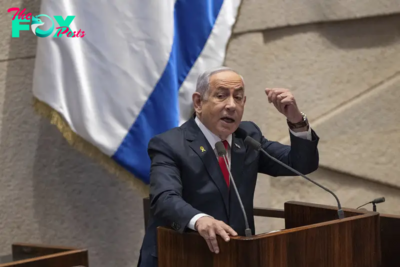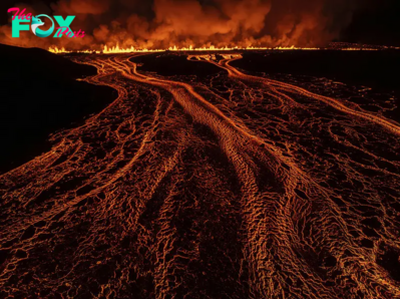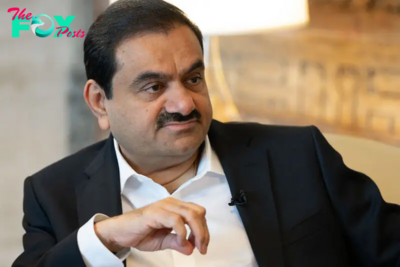World News
In Attempted Show of Force After Russia Pact, North Korea Missile Launch Fails
North Korea fired a ballistic missile that failed soon into flight, in an attempted show of force about a week after it struck a Military mutual-defense pact with Russia that alarmed the U.S. and its allies.
Read More: Putin and Kim Embrace New Era of Alliance, Signing Mutual Defense Pact in North Korea
The missile was launched at about 5:30 a.m. Wednesday from an area near Pyongyang, South Korea’s Joint Chiefs of Staff said in a message sent to reporters. An analysis was being done by South Korean and U.S. intelligence authorities to find out more details, it said.
The missile flew about 250 kilometers (155 miles) and exploded midair east of the North Korean coastal city on Wonsan, spreading debris over several kilometers, Yonhap reported a JCS official it did not identify as telling local reporters. The missile was likely carrying a hypersonic glide vehicle, a warhead designed to maneuver at high speeds to avoid interception, the official was cited as saying.
This is the first ballistic missile launch since Kim Jong Un’s regime fired off a simultaneous barrage of short-range ballistic missiles in late May.
North Korea has largely avoided missile failures over the past few years as Kim has rolled out a new array of rockets capable of carrying nuclear warheads and designed to strike the U.S. mainland as well as America’s allies Japan and South Korea. It has suffered setbacks with its rockets for deploying satellites, with its latest attempt in late May ending in failure when the rocket broke apart in a fireball soon after its launch.
Before the latest missile test, North Korea assailed the U.S. for sending the USS Theodore Roosevelt aircraft carrier group to the Korean Peninsula for joint training drills that included Japan and South Korea. It threatened retaliation.
“The DPRK bitterly condemns the provocative attempts of the U.S. and the ROK, the heinous confrontation maniacs with the most powerful rhetoric and with all possibilities of demonstrating its overwhelming and new deterrent force,” the official Korean Central News Agency on Monday quoted Vice Defense Minister Kim Kang Il as saying. He used abbreviations to refer to North Korea and South Korea by their formal names.
South Korean President Yoon Suk Yeol visited the aircraft carrier Tuesday as it was docked in the southeastern city of Busan. He said the visit was meant to show Kim the U.S. commitment to deploy its nuclear umbrella to protect his country, formally known as the Republic of Korea.
The U.S. and its allies Japan and South Korea started the week by condemning in “the strongest possible terms” the deepening Military cooperation between Russia and North Korea, calling it a grave concern and a threat to stability.
Envoys from the three said they were troubled by Russian President Vladimir Putin and Kim’s agreement to come to each other’s defense in case of attack, according to a joint statement released by the U.S. State Department. The pact was made last week during the Russian leader’s first visit to North Korea in 24 years.
Read More: Putin’s North Korea Visit Reeks of Desperation, Not Strength
The U.S. and its Asian allies have said they also saw the visit as advancing the transfer of munitions from Kim’s regime to help Putin’s war in Ukraine. The pact likely means the U.S. and its allies will have to recalculate what might happen if they use weapons against North Korea.
Envoys from the three held talks soon after the latest missile launch.
North Korea added to tensions by sending two new batches of balloons carrying trash across the border into South Korea this week after Seoul said it detected parasites such as roundworms in the contents of previous dispatches sent since late May.
The tally this week reached about 600 and the balloons briefly interrupted flights at Seoul’s main international airport Wednesday morning.
North Korea also held a mass rally in Pyongyang to mark the 74th anniversary of the start of fighting in the Korean War, where speakers “expressed their will to annihilate the U.S. imperialists and the ROK pupPets,” KCNA reported Wednesday.
-

 World News13h ago
World News13h agoWorld’s Best Brands – Brazil
-

 World News1d ago
World News1d agoWorld’s Best Brands – India
-

 World News1d ago
World News1d agoInternational Criminal Court Issues Arrest Warrants for Netanyahu and Hamas Commander
-

 World News2d ago
World News2d agoLandmark Bill to Ban Children From Social Media Introduced in Australia’s Parliament
-

 World News2d ago
World News2d agoAmerican and Australian Tourists Die in Laos After Drinking Tainted Alcohol
-

 World News2d ago
World News2d agoSee Photos of the Seventh Volcanic Eruption on Iceland’s Reykjanes Peninsula in 12 Months
-

 World News2d ago
World News2d agoMuhammad Yunus on the Race to Build Bangladesh 2.0
-

 World News2d ago
World News2d agoU.S. Charges Indian Billionaire Gautam Adani With Defrauding Investors

















